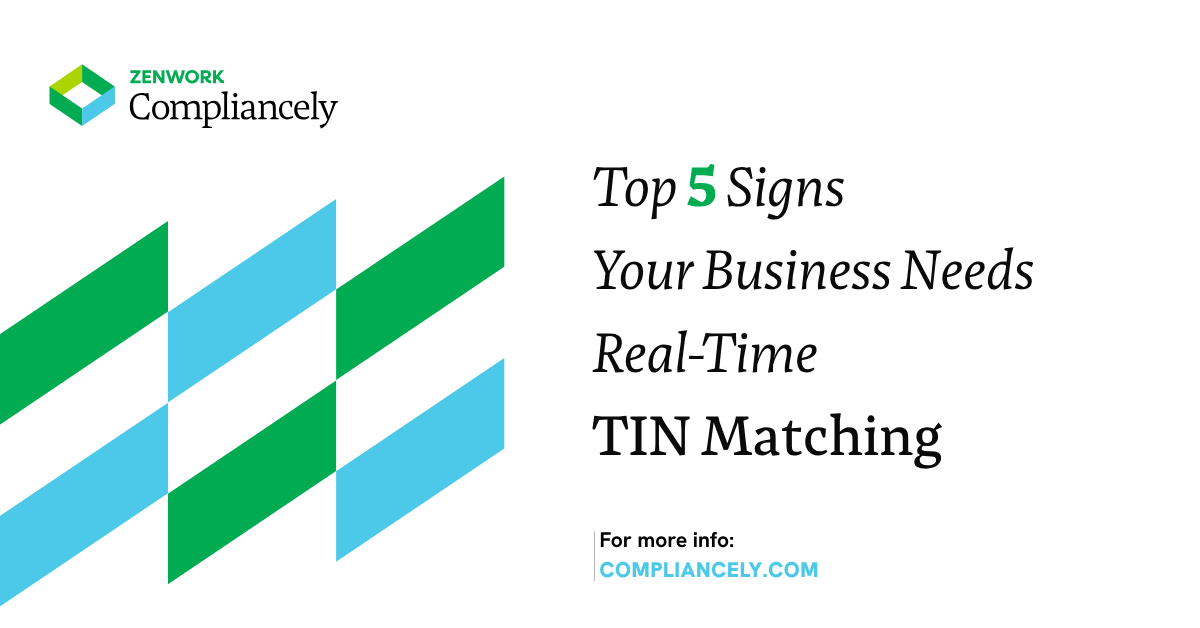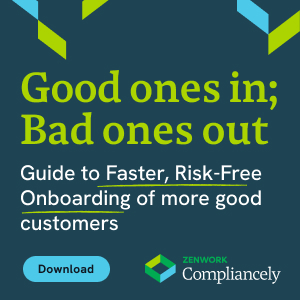Top 5 Signs Your Business Needs Real-Time TIN Matching

There are many things that businesses can afford. Assets, cryptocurrencies, budget for advertising, and so on. But penalties are not one of those things.
If you don’t already know, the IRS issues B-Notices to businesses that report incorrect TIN information.
Further, your business can be assessed for IRS penalties on the grounds of ‘willful disregard’ if you do not correct your incorrect TINs within the period stipulated by the IRS.
But let’s hold on for a second here. Let’s understand what a TIN is, first.
What Is A TIN?
A Taxpayer identification number or TIN is an official identifier assigned to businesses by the IRS. This identification number helps associated entities and the IRS track the real-time status of a business per the official records.
Fundamentally, TIN information helps the IRS track the tax owed and the tax collected from a business during a tax year. TIN also helps businesses with tax refund claims, business information updates, and informational filing.
What Is TIN Matching?
It is a practice of validating the taxpayer identification number provided by individuals or entities against the official records of the IRS. If the provided TIN/name combination matches the IRS records, it’s a TIN match.
If the TIN information does not match the IRS records, it’s a TIN Mismatch. This means that the vendor/entity provided the wrong TIN information to you.
Now, what would happen if you report an incorrect TIN?
The Cost of Each Incorrect TIN
It is essential to learn that each incorrect TIN could cost you at least $250 in penalty + interest. Further, the longer you put off correcting your TINs, the heavier the penalty is going to get.
TIN discrepancies are road blockers in your journey towards tax compliance and regulatory reporting.
Now that you understand the severity of TIN discrepancies, let’s take a look at some important signs, which will help you determine if your business needs a TIN Matching system.
Sign #1: You Are Paying More Than $600 To Each Vendor in A Year
The reporting requirements for Form 1099-NEC state that you must report all compensations made to independent contractors or vendors during a tax year. The instructions specify that you must report the payment if the amount is $600 or more.
Now, let’s say that you have made payments amounting to $600 each to a handful of independent contractors through the year but fail to report the correct vendor TIN in your tax returns.
You will end up paying almost half the amount in penalties on each vendor that already cost you $600 and you will have to take into account the inevitable interest on penalties on each incorrect TIN reported. Even the rounded off figure is not worth losing your hard-earned income to pay off penalties.
A simple TIN Match check could save you from such uncomfortable and stressful situations. All you have to do is check if the TINs match the IRS records. If the TIN matches the records, you’re good to go. If the TIN does not match the records, you will have to follow up with your vendors for the correct TIN/name information.
Sign #2: Returns with Vendor TINs Are Rejected for ‘Incorrect TIN Information’
If your returns are getting rejected frequently and if you notice a pattern in the rejected returns, wherein the returns that include your vendor/customer TINs are getting rejected then you need TIN Matching.
Reporting the correct TIN for your business is important. We have established this. But it is also important to report external TINs, wherein you report payments made and income received from entities or individuals outside the organization.
TIN Matching allows you to report the correct TINs of your vendors, entities, employees, and other parties and help you maintain regulatory compliance.
Sign #3: Vendors Unavailable During Tax Season
If you observe that your vendors tend to disappear after you process the payment or if the vendor is unavailable when the tax filing deadlines are approaching, then it is a surefire sign to incorporate TIN Matching.
Vendors tend to “ghost” you after you ask them for tax information when they are either hiding their income from the IRS or do not have a proper TIN in place.
A TIN Match system would optimize your vendor onboarding process in such a way that your business only adds verified vendors to its vendor list.
TIN Matching should be the number one step in the vendor onboarding process, and the vendor must be mandated to provide the required tax information before any projects are assigned or payments are processed.
Sign #4: Immense Year-End Rush
If your accounting teams are under tremendous stress when processing your tax reports at the end of the year or during every quarter, then it is probably a cry for help from you, signalling that you probably need to streamline your onboarding processes to get the tax information from your incoming parties, first thing.
TIN Matching API solutions or Bulk TIN Match solutions from Compliancely allow you to address this important issue. With Bulk TIN Match, you can check 100,000+ TINs in a day.
With Compliancely’s TIN Matching API, you can check unlimited TINs in a day. Either way, your TIN Match needs are sorted, reducing the workload on your accounting teams and giving you peace of mind during timeline-sensitive filing seasons.
Sign #5: You Plan to Add More Vendors To Your Master Sheet
If you plan on adding more vendors to your business in the current or next quarter, it is important to have a definite plan of action, wherein your tax compliance and regulatory reporting are prioritized.
Regardless of the size of your business, TIN Matching is crucial because TIN discrepancies will not only hurt you financially but could bring in reputational losses. If you think about it, not a lot of businesses are going to risk associating with another entity that is not in good standing with the IRS. You wouldn’t either.
So, incorporating a robust TIN Matching system like Compliancely is imperative to establishing self-compliance, streamlining vendor onboarding process, improving reporting accuracy, ensuring vendor-contractor compliance, and accomplishing tax compliance.
